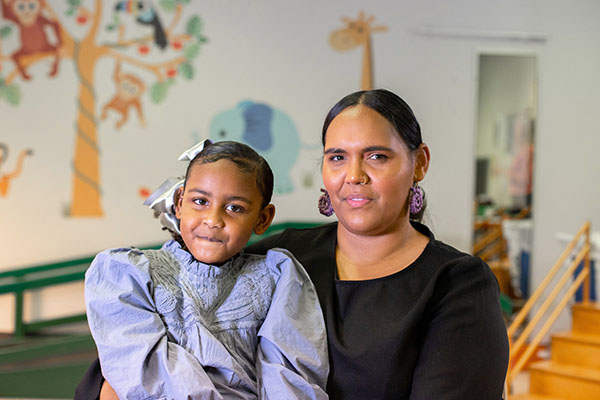Alicia is a Barkandji and Latji Latji woman (Murray and lower Darling River country). Her father is from NSW, and her mother is from Queensland and is a Buri Gubi and Waka Waka woman.

Four years ago, when Emily was one year old, she was involved in a horrific accident when a glass sliding door fell on her. She sustained a severe traumatic brain injury and spent a long time in intensive care, the ward in the hospital and then ongoing rehabilitation. Initially Alicia was told they didn’t know if Emily would live or be able to do anything for herself again or even remember Alicia.
What was worked well for Emily’s family in rehab
- The therapists were incredible, allowing Alicia to learn. They listened to her and responded at a human level.
- Alicia developed great confidence in her skills and learnt a lot. This has empowered her to be able to make decisions about accessing ongoing services.
- All the family were able to be with her in the hospital and we were never asked to leave the bedside.
Tips for clinicians
- Listen with sensitivity and involve the whole family.
- Understand Aboriginal people may have different styles of communication.
- Understand that Aboriginal people may have had previous negative experiences in hospitals for themselves or family members and be feeling fearful and anxious.
- Give the family time and space to ask questions and not overload them with too much information at once.
Tips for Aboriginal families
- Be confident, don’t be afraid about how long you will be in the hospital. It is part of the longer journey.
- Don’t let the injury define your child.
- If you are not feeling safe in a moment or situation, communicate that, because it is your right to feel safe.
- Speak up and express your needs.